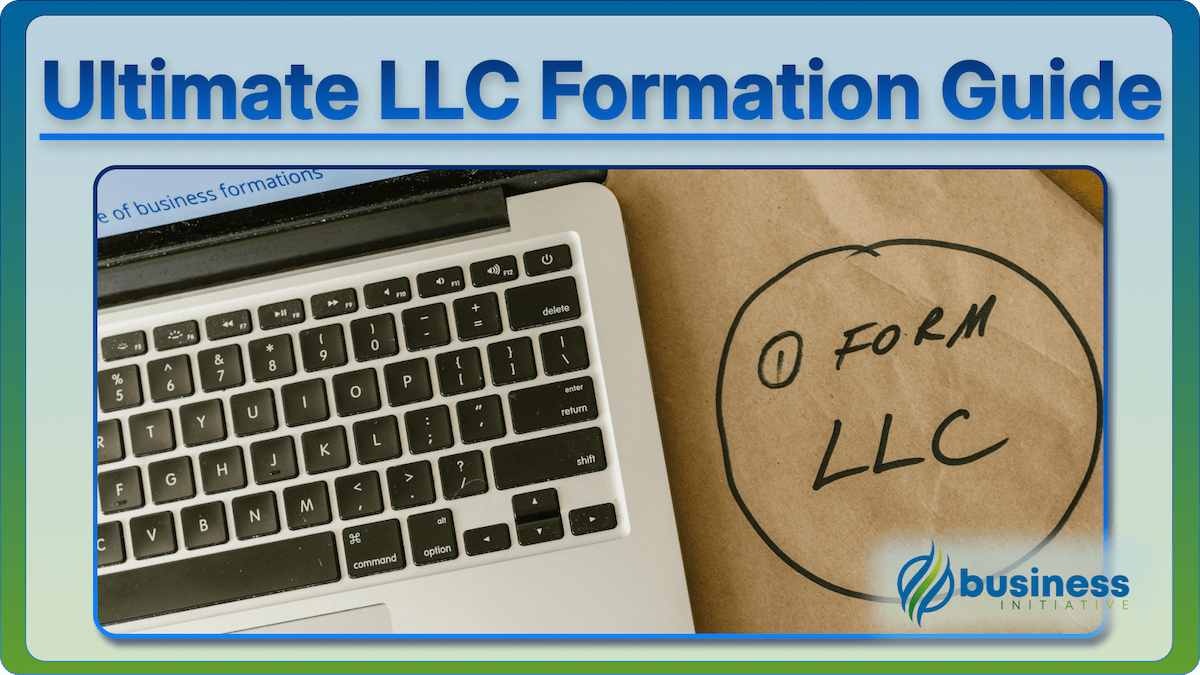You need your business formed fast.
But standard processing takes weeks. You have deadlines. Contracts to sign. Opportunities that won’t wait.
Expedited processing exists.
Faster timelines. Priority handling. But it costs more. Is it worth it?
This guide shows you when and how.
Expedited options. Realistic timelines. Cost considerations. When to use it. When to skip it.
Read this. Make the right decision. Form your business on time.
 Key Takeaways
Key Takeaways
- Expedited processing can reduce formation time from weeks to days, but costs significantly more than standard processing
- Most states offer expedited options with different speed tiers—understanding the options helps you choose the right one
- Expedited processing is worth it when you have urgent deadlines, time-sensitive opportunities, or need to start operations immediately
- Standard processing is often sufficient if you plan ahead and don't have immediate deadlines—saving money while still meeting your timeline
- Professional formation services can help you understand expedited options and choose the best approach for your situation
 Table of Contents
Table of Contents

What Is Expedited Processing
Expedited processing speeds up formation.
What it is:
- Priority handling of your filing
- Faster review and processing
- Reduced wait times
- Guaranteed faster completion
What it’s not:
- Instant formation
- Guaranteed same-day processing
- Available in all states
- Free
The reality: Expedited processing reduces wait times but still takes time. Understanding options helps you decide.
Expedited Options
States offer different expedited tiers.
Standard Processing
What it is: Normal processing time.
Timeline: Typically 1-4 weeks, varies by state.
Cost: Standard filing fee only.
When to use: No urgent deadlines. Can wait for standard processing.
Expedited Processing
What it is: Priority handling with faster processing.
Timeline: Typically 1-3 business days, varies by state.
Cost: Standard filing fee plus expedited fee.
When to use: Need formation within days. Have deadlines or opportunities.
Rush Processing
What it is: Highest priority, fastest processing.
Timeline: Typically same-day or next-day, varies by state.
Cost: Standard filing fee plus higher rush fee.
When to use: Need formation immediately. Critical deadlines.
Pro tip: Not all states offer all options. Check your state’s specific expedited options. See our state-by-state checklist for requirements.

Realistic Timelines
Here’s what to expect with each option:
Standard Processing
Typical timeline:
- Fast states: 1-2 weeks
- Average states: 2-3 weeks
- Slow states: 3-4 weeks or longer
Factors affecting timeline:
- State processing volume
- Time of year (busy seasons)
- Completeness of filing
- State-specific requirements
Why it matters: Standard processing is sufficient if you plan ahead.
Expedited Processing
Typical timeline:
- Fast states: 1-2 business days
- Average states: 2-3 business days
- Some states: 3-5 business days
Factors affecting timeline:
- State processing capacity
- Expedited tier selected
- Completeness of filing
- Time of submission
Why it matters: Expedited significantly reduces wait time but isn’t instant.
Rush Processing
Typical timeline:
- Same-day processing (if submitted early)
- Next-day processing (most common)
- 2 business days (some states)
Factors affecting timeline:
- Submission time (earlier = faster)
- State processing capacity
- Completeness of filing
Why it matters: Rush is fastest but most expensive.
Pro tip: Timelines are estimates. Actual processing time varies by state and circumstances. See our backlog timing guide for when to file.
Cost Considerations
Expedited processing costs more.
Standard Processing Cost
What you pay:
- Standard filing fee only
- No additional fees
Typical cost: Varies by state and entity type.
Why it matters: Standard is most cost-effective if time allows.
Expedited Processing Cost
What you pay:
- Standard filing fee
- Expedited processing fee
Typical cost: Expedited fee varies by state, often $50-$200+.
Why it matters: Expedited costs more but saves time.
Rush Processing Cost
What you pay:
- Standard filing fee
- Rush processing fee (higher than expedited)
Typical cost: Rush fee varies by state, often $100-$500+.
Why it matters: Rush is most expensive but fastest.
Cost-Benefit Analysis
Consider:
- How much is your time worth?
- What opportunities depend on formation?
- What deadlines are you facing?
- Can you afford to wait?
Why it matters: Understanding cost vs. benefit helps you decide.
Pro tip: Calculate the cost of delay. If missing a deadline costs more than expedited fees, expedited is worth it.

When to Use Expedited
Expedited makes sense in these situations:
Urgent Deadlines
When it applies:
- Contract signing deadline
- Funding deadline
- Partnership agreement deadline
- Other time-sensitive commitments
Why it matters: Missing deadlines can cost more than expedited fees.
Time-Sensitive Opportunities
When it applies:
- Business opportunity that won’t wait
- Client contract requiring entity
- Investment opportunity
- Partnership opportunity
Why it matters: Opportunities may disappear if you wait.
Immediate Operations
When it applies:
- Need to start operations immediately
- Need business bank account now
- Need to hire employees now
- Need to sign contracts now
Why it matters: Delayed formation delays business operations.
Competitive Advantage
When it applies:
- Need to move faster than competitors
- First-mover advantage opportunity
- Market timing is critical
Why it matters: Speed can be a competitive advantage.
Pro tip: If the cost of delay exceeds expedited fees, use expedited. Otherwise, standard processing may be sufficient.
When to Skip Expedited
Standard processing is fine in these situations:
No Urgent Deadlines
When it applies:
- No immediate deadlines
- Can wait for standard processing
- No time-sensitive opportunities
Why it matters: Standard processing saves money when time allows.
Budget Constraints
When it applies:
- Limited budget for formation
- Expedited fees are significant
- Standard processing meets timeline
Why it matters: Standard processing is more cost-effective when time allows.
Planning Ahead
When it applies:
- Started formation process early
- Have buffer time before deadlines
- Standard processing meets needs
Why it matters: Planning ahead eliminates need for expedited.
Low Time Value
When it applies:
- Time saved isn’t valuable
- No immediate business needs
- Can use waiting time productively
Why it matters: If time saved isn’t valuable, expedited isn’t worth it.
Pro tip: If you can plan ahead and don’t have urgent deadlines, standard processing is often the better choice. See our anti-delay formation plan for planning strategies.

How to Request Expedited
Here’s how to request expedited processing:
Check State Options
What to do:
- Review state’s expedited options
- Check available processing tiers
- Understand fees and timelines
- Verify requirements
Why it matters: Not all states offer all options. Know what’s available.
Select Expedited Tier
What to do:
- Choose appropriate tier (expedited vs. rush)
- Consider cost vs. speed
- Match tier to your needs
Why it matters: Choosing the right tier balances cost and speed.
Pay Expedited Fee
What to do:
- Include expedited fee with filing
- Use correct payment method
- Ensure payment is processed
Why it matters: Expedited fee must be paid for expedited processing.
Submit Correctly
What to do:
- Complete all required information
- Submit during business hours (if required)
- Follow state-specific instructions
Why it matters: Incomplete filings may delay even expedited processing.
Track Status
What to do:
- Monitor filing status
- Check processing updates
- Follow up if needed
Why it matters: Tracking ensures expedited processing proceeds as expected.
Pro tip: Professional formation services can handle expedited processing for you, ensuring correct submission and tracking. See our backlog timing guide for filing strategies.
Your Next Steps
Understand your options. Make the right decision. Form your business on time.
This Week:
- Review expedited options for your state
- Assess your timeline and deadlines
- Calculate cost vs. benefit
- Decide on processing tier
This Month:
- File with appropriate processing tier
- Track filing status
- Complete formation process
- Begin business operations
Going Forward:
- Plan ahead for future formations
- Understand state processing options
- Use expedited strategically
- Save money when time allows
Need help? Check out our backlog timing guide for when to file, our anti-delay formation plan for planning strategies, and our state-by-state checklist for state-specific requirements.
Stay informed about business strategies and tools by following us on X (Twitter) and signing up for The Initiative Newsletter.
FAQs - Frequently Asked Questions About Fast-Track Formation: When and How to Use Expedited Processing Strategically

What are the different tiers of expedited business formation processing?
Most states offer three tiers: standard processing (1-4 weeks), expedited processing (1-3 business days), and rush processing (same-day or next-day).
Learn More...
Standard processing is the default option with no extra fees, typically taking 1-4 weeks depending on the state and processing volume.
Expedited processing provides priority handling for an additional fee (usually $50-$200+), reducing wait times to 1-3 business days.
Rush processing is the fastest and most expensive option (often $100-$500+), offering same-day or next-day completion in most states that provide it.
Not all states offer every tier, so checking your specific state's available options is essential before filing.
When is paying for expedited business formation worth the extra cost?
Expedited processing is worth it when you face urgent deadlines, time-sensitive business opportunities, or need to start operations immediately.
Learn More...
If you have a contract signing deadline, funding timeline, or partnership agreement that requires an active business entity, the cost of delay likely exceeds expedited fees.
Time-sensitive opportunities—like a client contract requiring an entity or an investment opportunity with a closing date—justify the premium for faster formation.
When you need a business bank account, need to hire employees, or must sign contracts right away, delayed formation directly delays revenue-generating operations.
The key cost-benefit test: if the cost of missing your deadline exceeds the expedited processing fee, it's worth paying for speed.
When should you skip expedited processing and use standard filing instead?
Skip expedited when you have no urgent deadlines, face budget constraints, or planned ahead with enough lead time for standard processing.
Learn More...
If you started the formation process early and have buffer time before any deadlines, standard processing saves money while still meeting your timeline.
Budget-conscious founders without immediate business needs should use standard processing since the expedited fee provides no real value when time isn't critical.
Planning ahead is the most cost-effective strategy—starting formation weeks before you need it eliminates the need to pay premium fees for speed.
What factors can affect actual processing timelines even with expedited filing?
State processing volume, time of year, completeness of your filing, submission time, and state-specific requirements all impact actual timelines.
Learn More...
States experience busy seasons (such as year-end and Q1) when processing volumes increase and even expedited filings may take longer than usual.
Incomplete filings are a common cause of delays—missing information or errors can push your filing back regardless of which processing tier you selected.
Submission timing matters for rush processing: filing early in the business day increases the chance of same-day completion versus next-day.
Each state has unique processing capacity and requirements, so timelines are estimates rather than guarantees.
How do you request expedited processing when filing your business formation documents?
Check your state's available options, select the appropriate tier, pay the expedited fee with your filing, submit complete documents during business hours, and track your status.
Learn More...
First, review your state's Secretary of State website to understand which expedited tiers are available and their associated fees and timelines.
Choose between expedited and rush processing based on your deadline urgency and budget, then include the correct fee with your filing submission.
Ensure your filing is complete and accurate before submitting—incomplete filings can delay processing even when you've paid for expedited handling.
After submission, monitor your filing status through the state's online tracking system or follow up directly to confirm processing is on schedule.
How much does expedited business formation typically cost compared to standard processing?
Expedited fees range from $50 to $200+ on top of standard filing fees, while rush processing can cost $100 to $500+ depending on the state.
Learn More...
Standard processing only requires the base filing fee with no additional charges, making it the most cost-effective option when time allows.
Expedited processing adds a moderate premium—typically $50-$200—that gets your filing processed in 1-3 business days instead of weeks.
Rush processing commands the highest fees, often $100-$500+, but delivers same-day or next-day results for critical deadlines.
To decide if the cost is justified, calculate how much a delay would cost your business in lost revenue, missed contracts, or delayed operations.
Sources & Additional Information
This guide provides general information about expedited processing options. Specific options, fees, and timelines vary by state.
For filing timing strategies, see our Backlog Timing Guide.
For formation planning, see our Anti-Delay Formation Plan.
For state-specific requirements, see our State-by-State Checklist.


